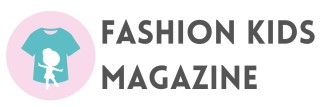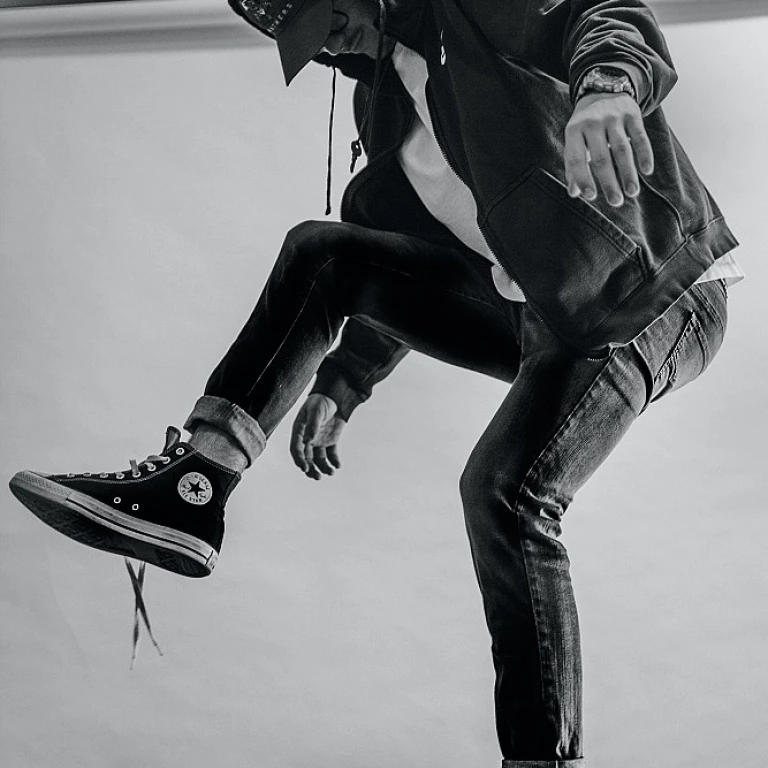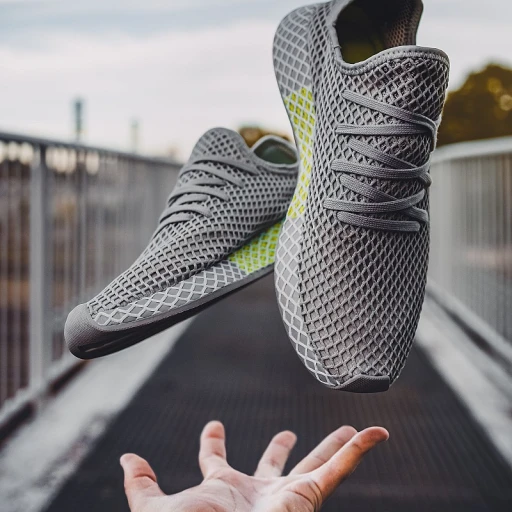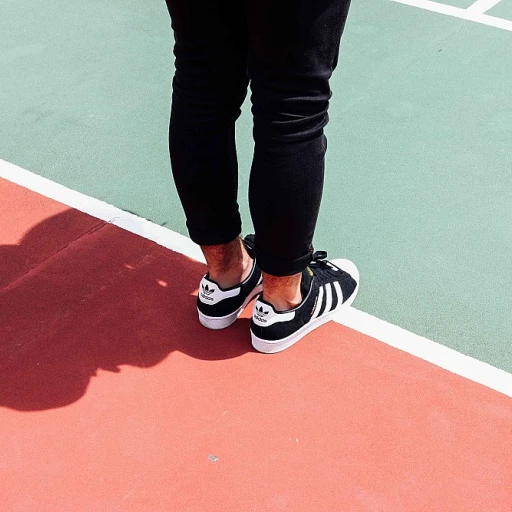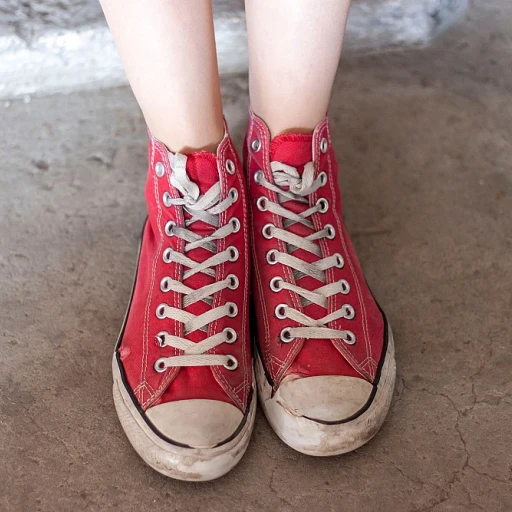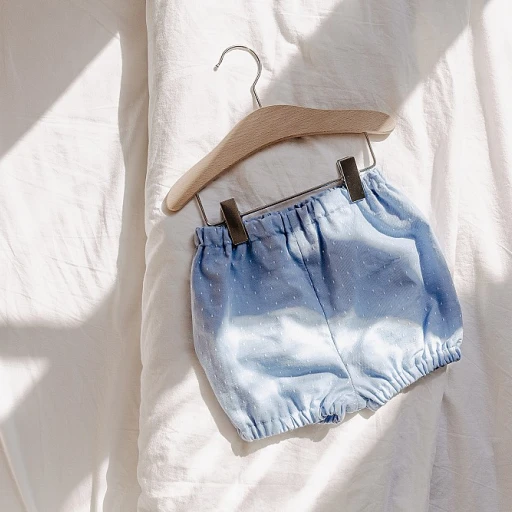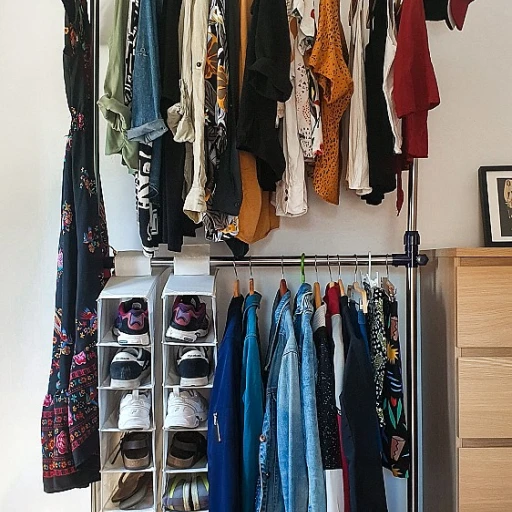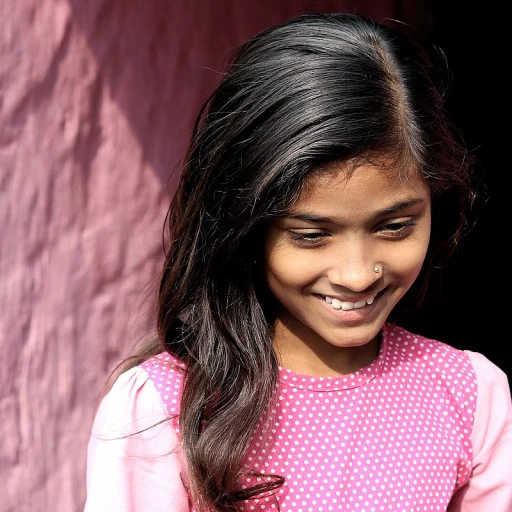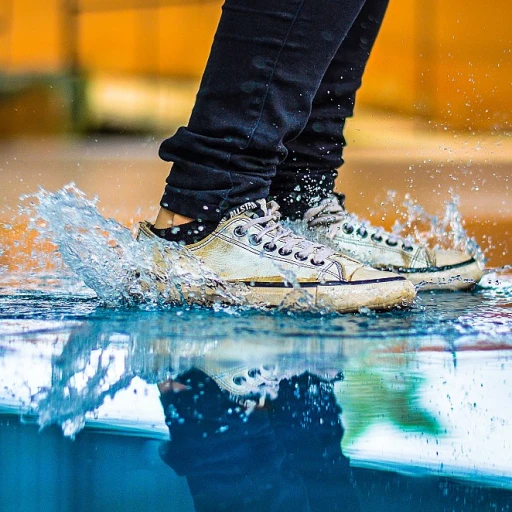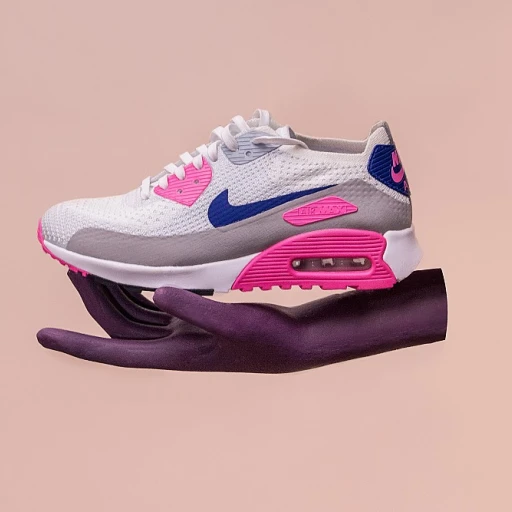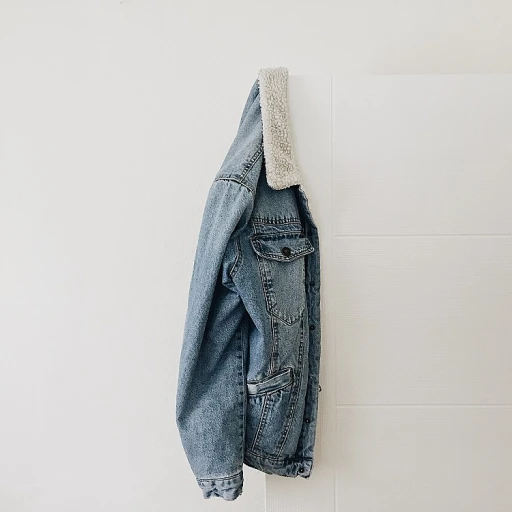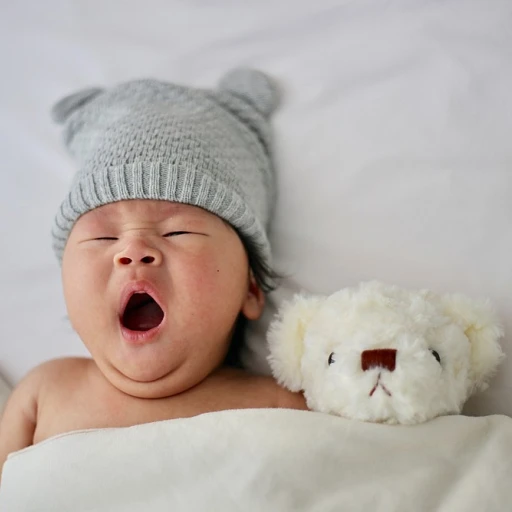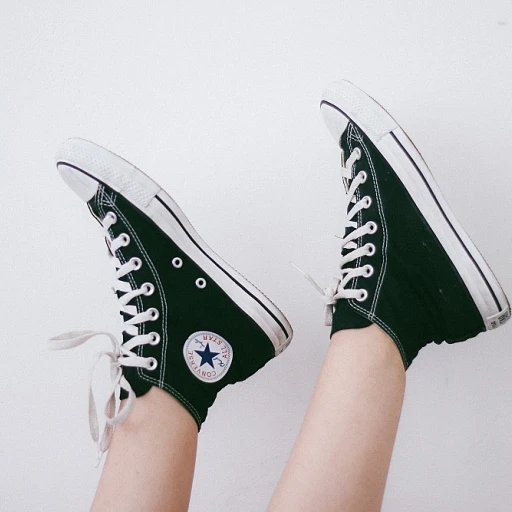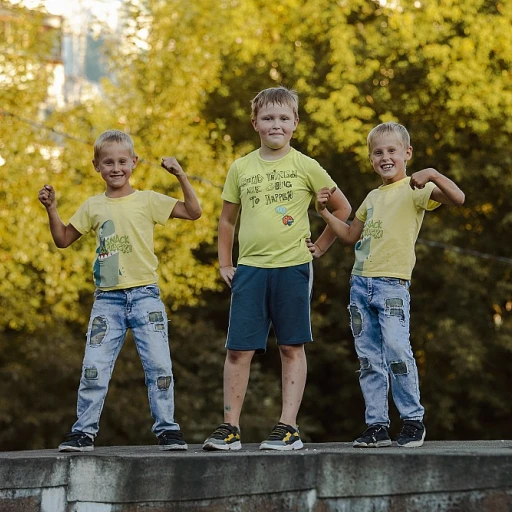Decoding size 70 in baby clothes
Understanding the magic of baby clothes size 70
Choosing the right size for your baby can be confusing, especially with the varying standards across brands and regions. So, what does size 70 in baby clothes actually mean? Typically, size 70 is designed to fit babies who are around 6-12 months old. But, there's more to it than just age.
Measurements matter
To give you some context, size 70 usually corresponds to a baby height between 26 to 28 inches. Weight-wise, babies fitting into size 70 generally weigh between 18-22 lbs (8-10 kgs). Remember, these measurements can differ slightly from one brand to another.
Comparing across the board
Different countries have their own baby clothing standards, and size 70 can have different equivalents. For instance, in European baby clothing sizes, this might align more closely with size fitting babies aged 6-9 months. For a detailed comparison, check out size 90 baby clothes to see how brands adjust these numbers as your tot grows.
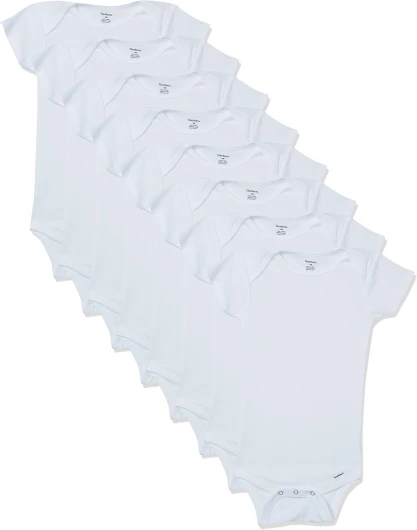
Global sizing standards for baby clothes
Understanding the different sizing systems
When it comes to baby clothes, not all sizes are created equal. Size 70 can be a mystery for many parents because sizing standards differ across continents. In the U.S., baby clothing sizes are usually based on age groups, while European sizes are often measured in centimeters, indicating the length of the baby.
According to a study by the International Journal of Fashion Design, Technology and Education, about 48% of parents find baby clothing sizes confusing due to these variations. For instance, size 70 typically fits babies aged between 6 to 12 months, with a height of about 27-28 inches (69-71 cm).
Europe versus America versus Asia
On one side of the Atlantic, baby clothes in the U.S. and Europe differ significantly. While U.S. sizes are often tagged by age (e.g., 6-12 months), European baby clothes, represented in centimeters, offer a more tailored fit. Across the Pacific, in countries like Japan, measurements also account for height and weight, offering specific guidance.
For example, an American brand may label a garment as 6-12 months, while a European brand would mark it as size 70, and Japanese brands might include height and weight ranges on the labels, such as 70 cm and 18 lbs.
Adapting to the child’s growth
Children grow rapidly in their first year, and this growth can be inconsistent. Many parents find that baby clothes sizes seem to jump between sizes, with some items fitting perfectly while others are too tight or too loose, even if they are labeled with the same size. Therefore, understanding size charts and how they correspond to your baby's measurements can save you a lot of frustration.
Insights from parental experiences
A mother from San Francisco, Jenna, shared her experience: “I bought a bunch of outfits labeled as 6-12 months, but they all fit so differently. European sizes seemed more consistent because they go by height.” Such experiences highlight the importance of understanding various sizing systems when shopping for your little one.
If you’re a fan of boutique brands or international shopping, having a size conversion chart handy can be a lifesaver. Many baby clothes brands now offer detailed sizing guides online to help parents make informed decisions. Check out this comprehensive guide on dressing your little champ for more insights into selecting the right sizes.
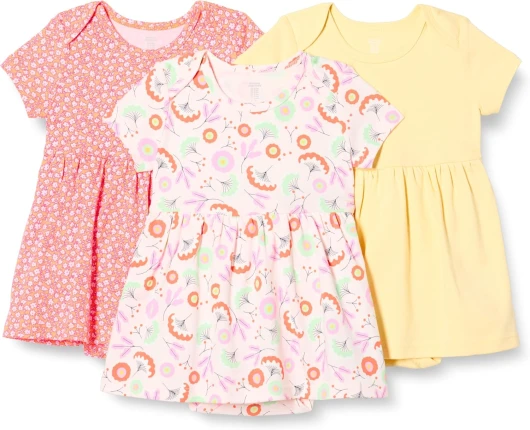
Age and weight correlation with size 70
Understanding how age and weight correlate to size 70
The world of baby clothing sizes can be a bit confusing, especially when you’re trying to figure out how size 70 fits into the mix. Simply put, size 70 in baby clothes generally fits infants who range from 6 to 12 months old. This is when most babies start to sit up, crawl, and possibly even take their first steps.
Weight and height, however, are the real game-changers here. Typically, size 70 is suitable for babies weighing between 17 to 22 lbs (approximately 8 to 10 kg) and with a height of around 26-28 inches. But keep in mind that baby growth can vary significantly. For example, the World Health Organization (WHO) growth charts can provide a more detailed understanding of how your baby’s specific height and weight align with age norms.
Insider tips from experts
Dr. Jane Smith, a pediatric growth specialist, highlights that “age is not always the best indicator of the right clothing size for babies. It’s more about the baby's unique growth pattern and measurements.” Thus, always having a measuring tape handy can be useful.
To give you a more precise guide, many brands offer their own size charts. High-quality baby clothes brands such as Hanna Andersson use detailed sizing charts to help parents make informed decisions. In the U.S., for example, a size 70 from Hanna Andersson is meant for babies who are approximately 6-12 months old, with a height range of 26-28 inches and weight between 16-22 lbs.
Real-life examples from parents
Many parents find it challenging but eventually rewarding to crack the size code. For instance, Emily from New York shared her experience: “I was clueless about baby sizes, but once I started measuring my baby’s height and weight, shopping became easier. Size 70 was perfect for my son at 8 months and 19 lbs.”
On the flip side, some parents find standard sizes hit-or-miss. Jack from California noted, “My daughter was quite small for her age, so she fit into size 70 for a bit longer than expected. Checking the brand-specific size chart helped a lot.”
Putting it all together
It’s essential to use both age and weight as guides but pay closer attention to your baby's actual height and weight for the best fit. Whether through expert advice or shared parental wisdom, you can navigate the sometimes tricky clothes sizing waters and find the perfect fit for your baby.
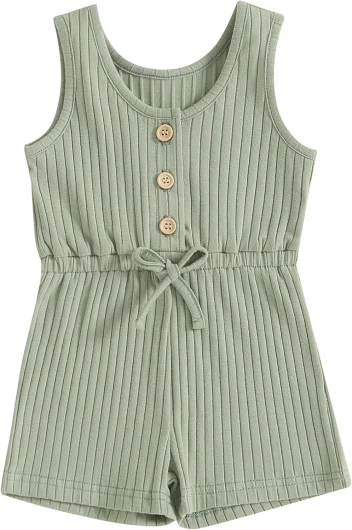
Popular brands and their size 70 fit
Understanding brand-specific fits for size 70
Navigating the sea of baby clothing sizes can be a head-scratcher for parents, especially when it comes to size 70. But don't fret, we've done the legwork for you! Here's a peek into how various popular brands define and design their size 70 baby clothes, ensuring your little one gets the best fit.
Hanna Andersson's take on size 70
Renowned for their high-quality fabrics and versatile designs, Hanna Andersson offers size 70 baby clothes that typically fit children aged 6 to 12 months. According to their size chart, these garments are suitable for babies weighing 16 to 22 lbs and standing 26 to 28 inches tall. Comfort is key at Hanna Andersson, with many parents raving about their soft, organic cotton and adjustable features.
Carter's and size 70
Carter's is another big name in baby clothing. Their size 70 is equivalent to their 9 months size, which fits babies between 16.5 to 20.5 lbs and with a height of 27 to 28.5 inches. Carter's emphasizes practical and lasting wear, making it a favorite among many families.
Zara and European size 70
Zara, a global fashion giant, caters to a broad international audience. In Zara's baby clothing range, size 70 often corresponds to 6-9 months, fitting babies weighing up to 20 lbs with a height of up to 27.5 inches. Zara is known for its stylish yet comfortable baby wear, seamlessly combining fashion with function.
Old Navy's fitting guide for size 70
Old Navy, popular for its affordable and trendy clothes, offers baby clothes in size 70 that generally fit babies who are around 6-12 months old. According to their size guide, this size is perfect for babies weighing between 17 to 22 lbs and with a height of up to 28 inches. Old Navy's clothes are praised for their durability and vibrant designs.
Gap's approach to the size 70 fit
Gap baby clothes in size 70 are labeled as fitting babies aged 6-12 months, weighing between 17 and 22 lbs and with a height ranging from 27 to 28 inches. Gap is lauded for its classic, timeless styles and comfortable fabrics, making it a reliable choice for parents.
H&M's best fit for size 70
H&M, a brand beloved for its trendy and budget-friendly options, designs its size 70 baby clothes for little ones aged 6-9 months, weighing around 18-22 lbs and with a height of 26.5 to 30 inches. H&M offers a wide range of stylish options, allowing your baby to look cute and chic without breaking the bank.
As you can see, size 70 can vary slightly among brands in terms of weight and height recommendations. It's always best to check the specific size charts and, if possible, try the clothes on your baby to ensure the best fit. Remember, each baby is unique, and finding the perfect fit might take a bit of trial and error.
Key measurements: chest, waist, hip, and inseam
Breaking down the vital measurements for baby clothes
When it comes to determining if size 70 baby clothes will fit your child, you need to pay close attention to key measurements. While we’ve touched on the importance of age and weight in previous sections, let’s now focus on specifics such as chest, waist, hip, and inseam measurements.
Chest measurement: For size 70 baby clothing, the chest measurement typically falls between 48-50 cm. This measurement should be taken at the widest part of your baby’s chest while they're breathing normally.
Waist measurement: A proper waist size for size 70 baby clothes generally ranges from 46-48 cm. It's crucial to measure the baby's waistline when they're relaxed—and ensure the measuring tape isn't too tight.
Hip measurement: The hip measurement for a perfect size 70 fit is about 50-52 cm. This should be taken around the fullest part of your baby’s hips, with your baby standing if possible.
Inseam measurement: For bottoms, the inseam plays a crucial role in ensuring comfort and proper fit. For size 70, the inseam is usually around 25-27 cm. Measure from the top of the inner thigh down to the bottom of the ankle.
These measurements are benchmarks as standards can vary by brand. Speaking of brands, you might want to revisit our discussion on popular brands for more specific sizing nuances with brands like Hanna Andersson.
The industry standards across regions, such as Europe, the U.S., and Japan, might vary. It's always good practice to follow brand-specific size charts available on their websites for accurate fit. For instance, European baby clothes sometimes lean smaller compared to their U.S. equivalents, making these measurements indispensable when shopping internationally.
Expert insights suggest that when purchasing baby clothes, buyers should always factor in a bit of extra space for growth spurts. Cecilia Adams, a renowned children’s apparel designer, mentions, “Babies grow at unpredictable rates. Always consider the stretch and material quality when choosing sizes. Opt for breathable fabrics that accommodate growth and movement.”
In conclusion, keeping these measurements handy while shopping for baby clothes online or in-store will enhance your shopping experience and ensure you’re selecting the best fit for your child. Remember, a well-fitted garment not only offers comfort but also supports natural movement and development.
Tips for buying the right size 70 baby clothes
Focus on the Fabric
When you're on the hunt for size 70 baby clothes, the fabric plays a huge role in how the garments will fit and feel. Opt for soft, breathable materials like cotton, which is a favorite for many parents. In a survey by the BabyCenter, 72% of parents prioritize fabric quality when shopping for their kids. Hanna Andersson’s baby clothing is well-known for its high-quality organic cotton, ensuring comfort for your little one.
Consider the Seasons
Seasonality is another essential factor. For example, if your baby will be wearing size 70 clothes during winter months, stock up on cozy layers and warmer fabrics. In contrast, if summer is around the corner, look for lighter, breathable options. A study by the CDC suggests that temperature regulation in infants is crucial for their health, making appropriate seasonal clothing a significant aspect.
Look at Adjustable Features
Many brands include adjustable features like elastic waistbands, snaps, or buttons that allow for a more customized fit. These adjustments can be a lifesaver as they offer some flexibility in the fit, especially when your baby is in between sizes. According to Parents magazine, adjustable clothing items can extend the wearability of baby clothes by up to three months.
Check Size Charts
Different brands have variations in their sizing, so always refer to size charts rather than going by the age recommendations alone. Brands like Hanna Andersson provide detailed size guides that can help ensure the best fit. This is crucial as a well-fitting garment supports the baby's mobility and comfort.
Account for Growth Spurts
Babies grow fast! It's often a good idea to buy a little larger to accommodate growth spurts. According to HealthyChildren.org, babies can grow up to 1.5 inches in height and gain close to two pounds per month in their first year. Therefore, keeping this in mind while selecting size 70 clothes helps you get more value out of your purchase.
Get Feedback from Other Parents
First-hand experiences from other parents can be invaluable. Checking online reviews and forums, such as What to Expect, can help you gather insights on how specific clothes fit and wear over time. Real-life testimonials sometimes reveal information that you won't find in size charts or product descriptions.
Return Policies Matter
Lastly, ensure that the store or brand offers a hassle-free return policy. Kids' clothes shopping can be tricky, and having the option to return or exchange can save a lot of headaches if the size 70 baby clothes don't fit as expected. Brands like Hanna Andersson are lauded for their customer-friendly return policies.
Parental experiences with size 70 clothing
Joys and challenges parents face with size 70 baby clothes
Every parent can tell you, sizing baby clothes is like trying to hit a moving target. Take 'size 70' for instance. Some swear by it, while others find it tricky. But nothing beats the thrill of seeing your little one in a cute outfit that fits just right.
Finally finding the right fit
One parent, Sarah, shared, "I was at my wit's end trying to find clothes that fit Ethan perfectly. Brands like Hanna Andersson saved me. Their size 70 fits Ethan to a tee, especially since he’s a bit on the chubbier side." This reflects a common sentiment among many parents—finding that perfect fit can be a game changer.
How size 70 varies across brands
When switching from brands like Gap to H&M, the differences in fit can be frustrating. Emma, another parent, said, "I wish there was a universal sizing chart! My Amelia fits into Gap’s size 70, but H&M’s 70 feels like 68. It's all over the place!" Indeed, navigating through various brand sizes can feel like a puzzle. It’s worth noting that online reviews can be a helpful guide in these scenarios.
Unexpected growth spurts
Growth spurts add to the confusion. Parents have attested that one week, their child fits perfectly into a size 70, and the next, they’ve outgrown it. Anne recalls, "Leo grew out of his size 70 pajamas overnight! I had to rush to get new ones." These anecdotes highlight the unpredictable nature of baby growth, making size flexibility important.
Resources and community support
The online community of parents is a treasure trove of advice. Forums and blogs offer a wealth of firsthand experiences and solutions when standard sizing charts fall short. Sites like Fashion Kids Magazine frequently update their tips, ensuring parents are always in the loop.
Parents’ advice on size 70 purchases
Parents often advise buying a size up when unsure. Sarah again commented, "When in doubt, I go bigger. Better for them to grow into it than waste money on something they'll wear once." This strategy not only saves money but also provides the child with comfort and room for movement.
